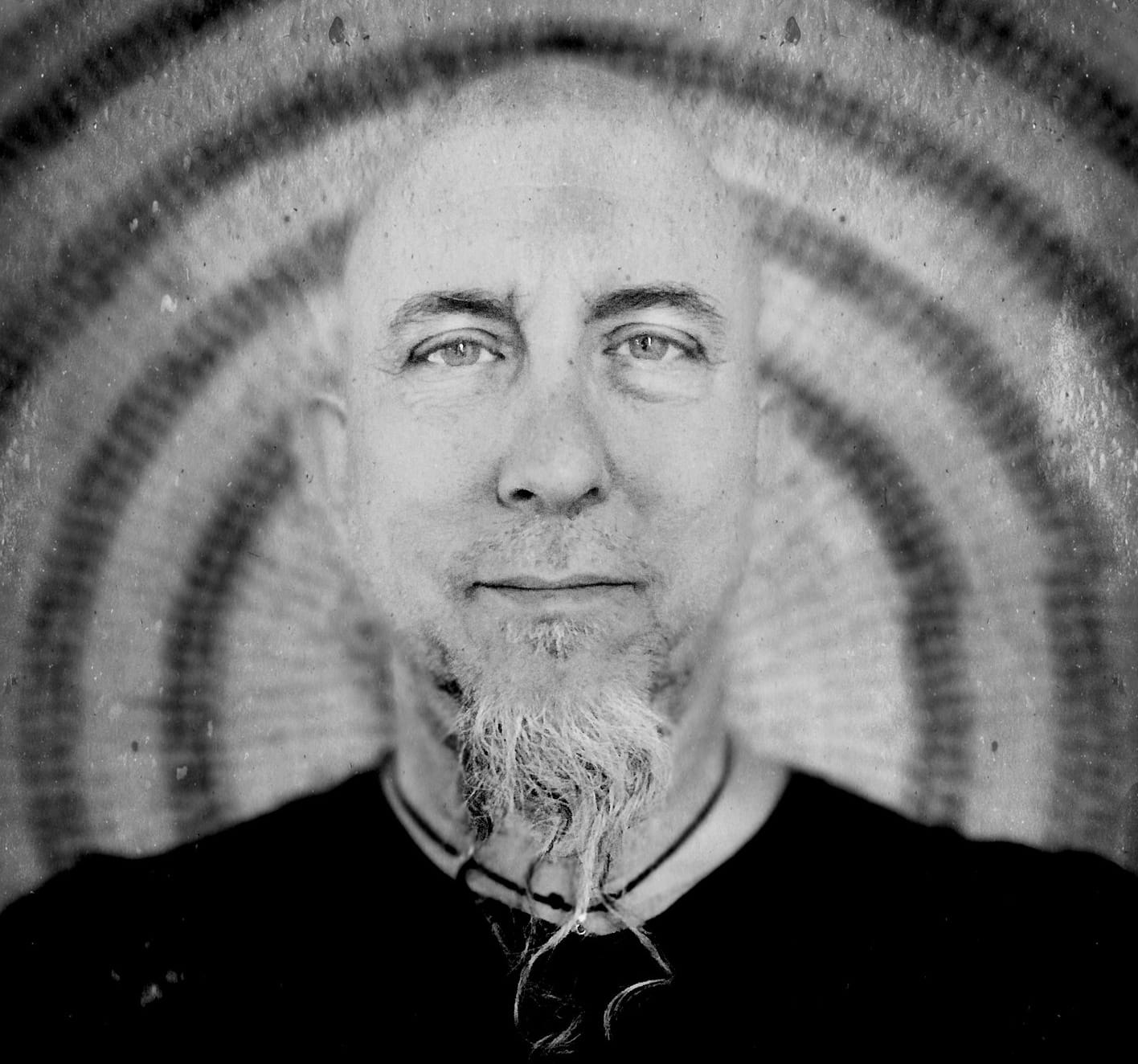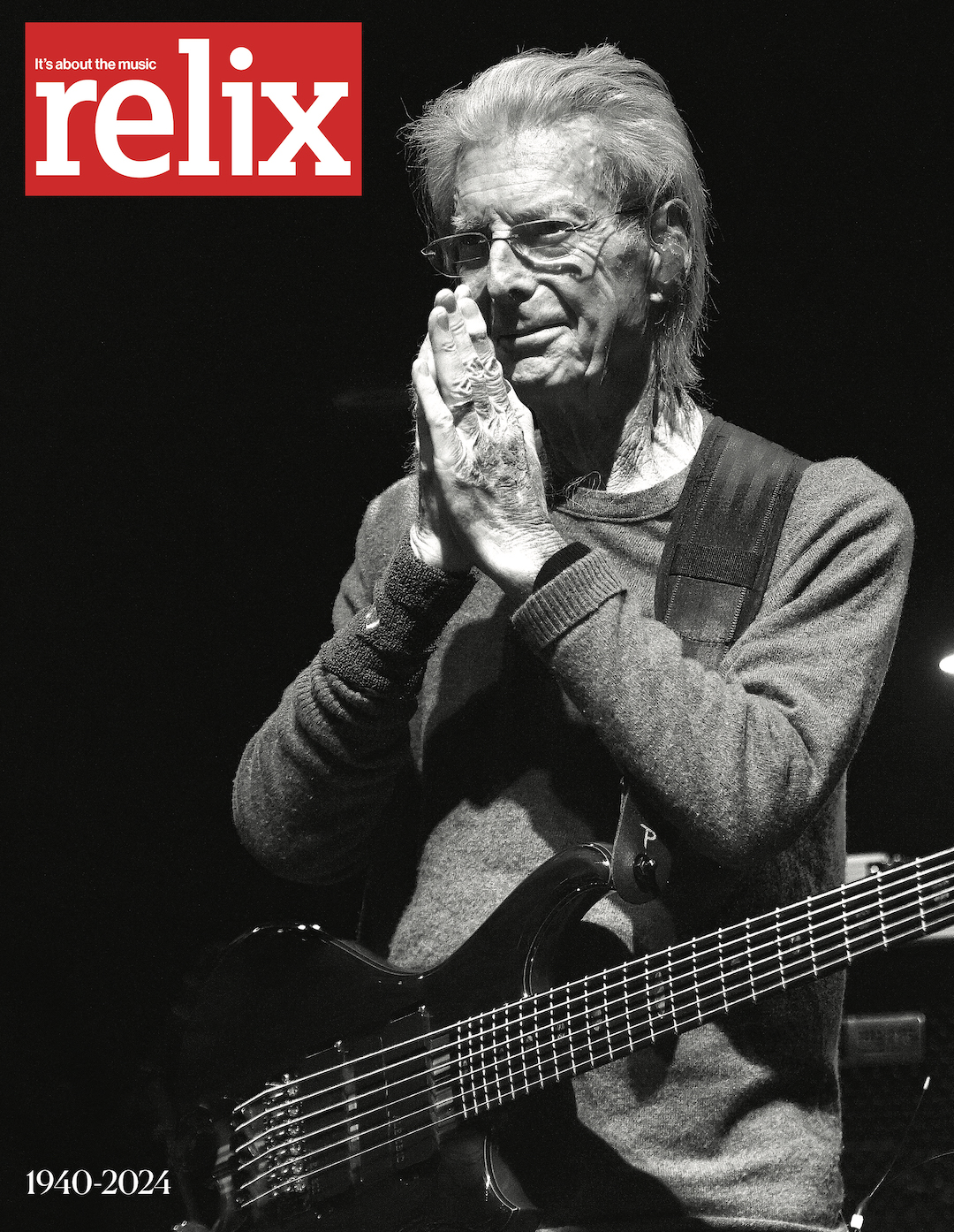Jeff Coffin: Event Horizon

The origins of Jeff Coffin’s latest album can be traced all the way back to his undergraduate days at the University of North Texas in the late ‘80s. It was there that he first began to explore African music, thanks to percussionist Lee Ann Morris, who’d taken an interest in these sounds.
Coffin recalls, “I asked her if she would bounce down to cassette a couple of her favorite records and she gave me King Sunny’s Adé’s Synchro System, which is Nigerian Afro-pop, and she gave me some field recordings from the Congo. What I was hearing absolutely blew my mind because I knew it was deep culturally, even if I didn’t understand it. So to get to work with musicians who are playing traditional Guinean rhythms, and to be able to integrate that into what I’ve been writing and the Black American music that’s influenced me for the last 40 plus years, is a dream come true.”
On Only the Horizon, Coffin— who contributes sax, clarinet and flute—is joined by the Yeli Ensemble, a West African collective that is based in Nashville, as well as some Charleston, S.C.-based musicians, who are steeped in the Gullah Geechee culture, which originated in Guinea and Senegal.
All told, 42 musicians appear on the nine tracks. Coffin enlisted four fellow members of the Dave Matthews Band (Carter Beauford, Stefan Lessard, Buddy Strong, Rashawn Ross), three musicians he played with for many years during his tenure in the Flecktones (Béla Fleck, Victor Wooten, Roy “Futureman” Wooten) and numerous other artists, including MonoNeon, Bill Evans, Keb’ Mo’, Tony Hall, Cory Wong, Alana Rocklin, Rory “R.A.P.” Ferreira and Coffin’s wife, Ryoko Suzuki.
The project took nearly two years to complete, the longest such timespan of Coffin’s solo career. He explains, “I knew that I wanted the Yeli Ensemble on the entire thing. They were the spine of this record. Then there were certain people that I hand picked for particular tunes—like Daru Jones, who’s more known as a hip-hop drummer, but I wanted to get him in to do some of the 6/8 African-feel kind of stuff along with some of the funkier stuff. He was perfect, just as Derico Watson, Nate Smith and Keith Carlock were perfect. I also have seven different bass players because I wanted them to bring their own unique personalities to specific tunes.”
When it came to writing the compositions on Only the Horizon, Coffin says, “It starts with a feeling. There’s sort of an emotional wave to it. I’ve never formally studied composition or arranging, but I feel like I have a gift for melody. I’m looking to mask the complexity of what’s going on with the simplicity of the melodies. I feel like melody is so important, and it’s lost in a lot of improvisational music these days—call it jazz, call it whatever you will—where people are writing this intricate stuff just to write intricate stuff.
“Look, I’m into the avant garde too. I’ve done three or four duo records with drummers that are pretty free, but there’s still melody in there. I think Ornette Coleman is one of the most melodic musicians ever to play the instrument and he was considered to be a free avant garde improviser. Some of Albert Ayler’s stuff has beautiful melodies. Coltrane, too, has really gorgeous melodies in the midst of all that freneticism—Pharoah Sanders as well.”
Coffin pays tribute to Sanders on the album’s third track, “Pharoah Rise.” He reflects, “I got to see Pharoah one time in Fort Worth, Texas, at Caravan of Dreams. To this day, it is the most electrifying show I’ve ever witnessed. His work with Coltrane affected me but his solo records were beautiful, brilliant and deeply moving—the way that he would stir emotion with his sound and the vocality of how he played.
“I wrote ‘Pharoah Rise’ the night that he passed. Later, I played a few things for R.A.P. Ferreira, and that’s the tune he wanted to do. I wanted the parts where he sang ‘Pharoah rise, Pharoah set,’ to sound like a chant behind him, a la A Love Supreme, where they’re all reinforcing and singing that.”
The preceding song, “Yesterday’s Dream” concludes with the final voicemail that Coffin received from his late father back in 2017. He had kept it on his phone for a few years, hoping to find a place for it one day in a musical setting. Only the Horizon offered such an opportunity, reinforcing one of record’s themes.
The title track originated with someone telling Coffin that, when it comes to art, “There is only the horizon.” Coffin later came to the conclusion that this concept applies both to the past and the future.
As for “Yesterday’s Dream,” he says, “I’m exploring woodwind stuff—different sounds with flutes and horns and combinations of putting the baritone sax with the bass. So it’s got a little bit of melancholy to it, but it’s also moving forward at the same time. The whole record has that, which is the purpose of the title.”
A song like “Bom Bom” leans into the Afrobeat vibe that one might expect from the record’s core personnel. “It’s almost like you’re on your heels and then, suddenly, you’re on the tips of your feet in the way that the melody kind of springs forward,” he says. “It’s influenced by people like Tony Allen, Fela Kuti, Femi Kuti, Sunny Adé and all that. The beginning originally started with drums and percussion, then at a certain point, I had Keith Carlock’s part muted as I was listening to it. That’s when I realized, ‘Oh, this should start with just percussion.’ Then Keith comes in and drives it like crazy.
“Sometimes Afrobeat tunes will go on for 15 or 20 minutes and even longer live. This is short comparatively, but I wanted there to be some group solos in there. I’ve got Emmanuel Echem and Ray Mason on horns. I’ve also got Mars Williams on tenor, which is one of the last things he recorded before he passed. People seem to gravitate toward that groove. It kind of gets up inside and makes you want to move around a bit.”
As he describes his overall approach to Only the Horizon, Coffin identifies the many ways he hopes to galvanize his listeners. “I feel like I’m always exploring some kind of global sound,” he says. “What I find in a lot of that music is that most of it is dance music. One of the things that I realized many years ago is that music should make you want to move. To me, Ornette Coleman is dance music. The Soul Rebels or Dirty Dozen Brass Band, that’s dance music. Coltrane—late Coltrane, early Coltrane, whatever—that’s dance music. You’re going to dance in a different way, but you’re going to move to it. Those elements are really important to me with this record. One of the underlying factors is that I want to move you not only physically, but emotionally and spiritually as well.”




















